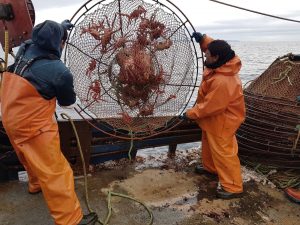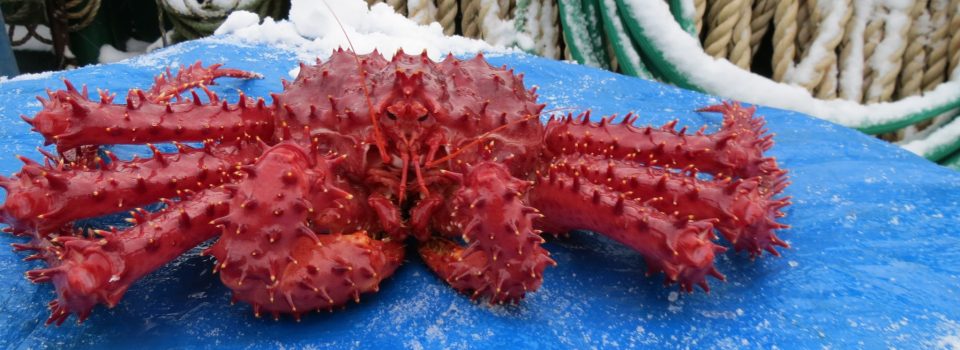New crab fishery work guidelines are planned by INDEP and IFOP
July 31st, 2020
Researchers from both organizations discussed different knowledge areas in which each group is working and looking for joint vision points from which a work agenda will be generated.
In order to continue advancing in a series of workshops on crab fishery (Lithodes santolla) that began in 2017, researchers from National Fisheries Research and Development Institute (INIDEP) and Fisheries Development Institute (IFOP) from Chile, held during the last few hours a virtual meeting.
This cooperation is based on the framework of an existing agreement that has stands for several years between both institutions. In the last days, Benthic Crustacean Fisheries Program members, together with Trans-Andean institute scientists, discussed different areas of knowledge in which each group is working and looking for common points from which a work agenda can be generated.
Participant researchers from INIDEP were Lic. Carla Firpo, Ing. Cecilia Mauna and Tec. Valeria Mango, while IFOP was represented by scientists Erik Daza, Eduardo Almonacid, Ruth Hernández and Cristian Vargas.
So far, main research lines focus on fishing gear modifications in order to reduce non-commercial crab discard and marine mammals interaction. In this sense, Benthic Crustacean Fisheries program has carried out numerous experiences and studies on escape rings application in spider crab traps and how their operation notably reduced juveniles and females discard, as well as the accompanying fauna.
Justamente, en el INIDEP se continúan los estudios sobre la efectividad del paño de inactivación de las trampas a fin de evitar la pesca fantasma. Asimismo, existe un convenio del Instituto con la Universidad Nacional de Mar del Plata (UNMDP) que enmarca las acciones tomadas en lo referente a las interacciones con mamíferos marinos.
On their side IFOP, have made progress in some aspects, such as filming displayed seabed performance, an activity that is also planned to take place in Argentina.
Future meetings and research to be carried out in the future show scientists interaction enrichment, in benefit of a common fishery resource for both countries. News source: INIDEP
